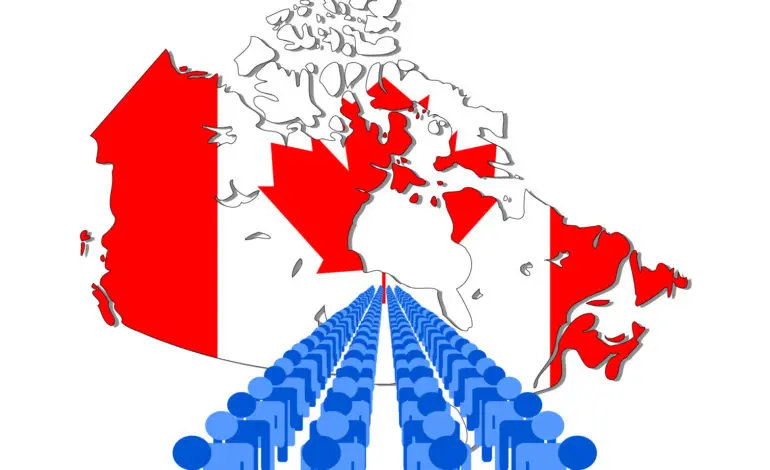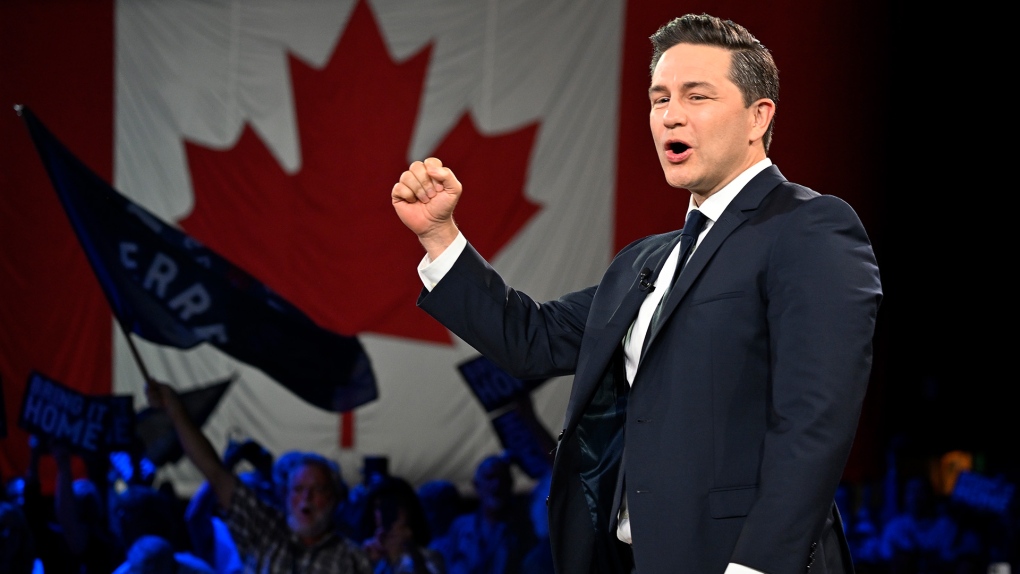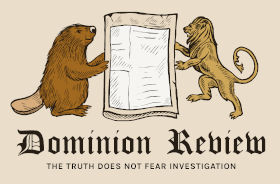“I am going to get very vocal about things happening in Canada, and I’m okay if that upsets some people”. That’s how former Vancouver Police Board vice-chair Comfort Sakoma began a series of Instagram posts describing her concerns about the effects of mass immigration and state-imposed multiculturalism. She didn’t pull any punches:
“Years ago, I warned that Canadians were losing the ability to define what it truly means to be Canadian. Take ten random people off the street, and we can’t identify a common food, sport, or pastime that unites us. The implications of an immigration system that allowed for mass immigration without considering cultural integration, combined with a growing aversion to assimilation, are slowly transforming Canada into a place where a shared identity is disappearing. I don’t recognize my country anymore. The friendly smiles, courteous service, and even the simple “sorry” when someone bumps into you – traits that used to define our culture – are now fading away.”
She went on to argue that the ideology of multiculturalism now dominant in Canadian schools masks itself in a cloak of secularism, but in reality regularly promotes religious beliefs – as long as those beliefs are not Christian:
“Recently, my son was invited to participate in a Diwali celebration at school, and it took me some time to realize that the push for secular education isn’t about religion – it’s about erasing Christian values from the lives of our children. Now, those values are being replaced by those of a new dominant group. First, they’re participating in Diwali celebrations; next, they’re drawing parallels between Hindu values and Canadian ones. Before we know it, those values will be the new norm, and Hinduism could become the dominant cultural influence.”
Canadians will have differing views on the likelihood of Sakoma’s prediction that a foreign religion could become a new dominant cultural influence. That notwithstanding, her central question is an important concern: are Canada’s public schools more focused on promoting non-Christian religions than preserving secularism in public institutions?
When I was growing up in Vancouver, my class was taken on a field trip to learn about religion in the city. We were taken to a mosque, a Sikh gurdwara, and a Buddhist temple; a church was not on the itinerary. This is not an outlying example; it’s the new norm. It is hard to believe that Canada’s institutions are genuinely committed to secularism when only one religion is sidelined, and others are put on display as exotic and enriching.
Sakoma clarifies that she has “nothing against Hinduism”, and that she actually studied it for three years – an experience she found valuable and which gave her a new perspective on her own religious beliefs. She is not opposed to foreign worldviews in general, but rather is specifically concerned about the shoving aside and replacement of Canadian values and identity:
“However, while I respect Hinduism and its rich traditions, if I want an Indian experience, I’ll go to India. What I want for Canada is for it to remain true to its own roots – rooted in its unique values and identity, which is what has always made us who we are”.
Sakoma, who is of Nigerian descent and came to this country as a young child, goes on to argue that every culture on the face of the earth has a right and a duty to preserve its own unique identity and values to pass on to future generations:
“If I took my two-year-old son to Nigeria and the food, the people, the music, the languages all seemed like I was in Ethiopia, I would be deeply saddened. Not because I don’t love Ethiopian food, music, or its beautiful people, but because it would mean an equally beautiful tradition had been replaced. This is why the preservation of culture matters so much. Every country owes it to its ancestors and to the history books to fight for the preservation of its heritage. If that is lost, one day all the lives sacrificed for the people, and the efforts made to build that nation, will fade into obscurity. Soon after, everyone will forget that they ever existed.”
I have quoted extensively in this article because, when the mainstream media outlets reported on what Sakoma had written, they only condescended to give their readers small sentence fragments. Neglecting to actually provide statements in their full context is a common practice when a public figure is cancelled for saying something controversial – a tactic that is lazy at best, dishonest at worst, and leaves Canadians with a skewed perspective of what was actually said. You can read Sakoma’s Instagram posts in detail here.

Sakoma’s posts became the subject of discussion on Vancouver and B.C. subreddits, and on November 22nd, a statement posted to the Vancouver Police Board website explained that she had been asked to resign:
“Recent statements posted on social media by the vice chair of the Vancouver Police Board do not reflect the values of the Board and are inconsistent with our code of conduct. While I value the many contributions Comfort Sakoma-Fadugba has made as a member of this Board since 2022, these statements have made her continued service on the Board untenable. This afternoon, I requested and received Comfort’s resignation from the Vancouver Police Board.”
Whether one agrees or disagrees with Sakoma’s statements, forcing a government employee to resign over political views expressed outside of work is deeply troubling. I encourage her to seek legal advice on the viability of a lawsuit against the Vancouver Police Board.
According to the B.C. government, police boards “govern and oversee the police department in the best interest of the community”. Provided that board members are fulfilling that role, what does it matter if – in their spare time – they happen to have outspoken views on issues of the day? Forcing government employees to resign over deeply held personal views that do not impact their job performance is a direct assault on free speech. Freedom of expression is a treasure that very few countries possess, and one we should not take lightly.
The persecution of minority-held beliefs has been a constant throughout history – morally wrong to be sure, but not surprising. What is particularly bizarre about contemporary Canada is that this situation is inverted: majority-held beliefs are driven out of the public square by a very small minority of ideologues that holds disproportionate power in our institutions.
Sakoma pointed to the drawbacks of mass immigration – she is hardly the only one. In an Abacus poll conducted in October, no fewer than 72% of Canadians – a statistical supermajority – said immigration levels are too high. Sakoma expressed concern over “a growing aversion to assimilation”. According to a survey conducted by Leger for Canada’s Immigration department, 63% of Canadians think that “immigrants need to do more to integrate into Canadian society”.
The statement released by the Vancouver Police Board claims that Sakoma’s statements “do not reflect the values of the Board”. Judging from the opinion polls, it seems more accurate to say that the views held by the Vancouver Police Board do not reflect the values of the majority of Canadians.
All content on this website is copyrighted, and cannot be republished or reproduced without permission.
Share this article!





It underscores the complexities of balancing freedom of speech with the responsibilities of leadership in sensitive and diverse communities.
The incident brings up important questions about how public officials navigate discussions on immigration while maintaining a tone that fosters inclusion and trust. Immigration is a nuanced topic that impacts economic, social, and cultural dynamics, and leaders are expected to approach it with thoughtfulness and care.
I appreciated the article’s focus on the broader implications of this resignation. It raises important points about the accountability of public figures and the potential consequences of their statements on public trust and community relationships.
This situation also serves as a reminder of the importance of having constructive dialogues about immigration policies. Open, respectful conversations are necessary to address concerns while honoring the contributions and rights of immigrants who shape the fabric of our communities.